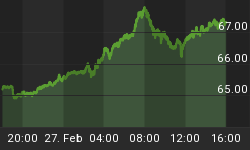About a year ago, the U.S. Congress started summons against Google’s parent company Alphabet Inc. (NASDAQ:GOOG) and Facebook Inc. (NASDAQ:FB) over alleged misuse of private data. On Tuesday, it was Google’s turn to face the lawmakers and boy, did the hearing turn into pure comedy gold. The session teetered between farce and drama as several congress members took turns grilling Google CEO Sundar Pichai but repeatedly appeared befuddled by how the search giant works.
A pugnacious Texas Representative Ted Poe, a Republican, opened proceedings thus:
“I have an iPhone,” he put it to Pichai while holding up an iPhone. “If I move from here and go over there and sit with my Democratic friends—which’ll make them real nervous—does Google track my movement?”
He then moved in for the kill as Pichai pondered the question. “It’s either yes or no.” But before the Google chief could stammer out a coherent answer Poe was on him again, glowering at him from the dais: “It’s not a trick question! You know, you make $100 million a year, you ought to be able to answer that question! Before snidely dismissing him: ‘‘I’m shocked you don’t know, I think Google obviously does.’’
Some of the other queries thrown at Pichai were absolutely hilarious, such as when Rep. Zoe Lofgren posed:
‘‘If you Google the word ‘‘idiot’’ under images, a picture of Donald Trump comes up. I just did that. How does that search (Google) work so that that would occur?’’ Fortunately, Pichai was able to come up with a pretty comprehensive answer that the lady appeared satisfied with. Related: This Billion Dollar Project Is Reshaping The LNG Business
Poe was not the last congressman to mistake the iPhone for a Google product as Rep. Steve King got personal and asked Pichai about offensive language directed at him popping up in his 7-year granddaughter’s iPhone.
Technology challenges
The exchange perfectly showcased the paradox of entrusting technologically challenged lawmakers with the complex task of regulating a complex industry like information technology and the internet.
It’s quite obvious that Pichai could not give a simple yes or no answer to Poe’s question because the question was not a simple one. The iPhone is made by another Google rival—Apple Inc.(NASDAQ:AAPL)—and does not come with any pre-loaded software by Google. Whether Google can track Poe or not depends on what apps have installed in his iPhone, whether he has GPS turned on and what permissions he has specifically granted them. Pichai tried to say something to that effect, though not in as many words, but an impatient Poe thought he was being coy and rudely cut him off.
It’s tempting to mock members of Congress whose questions evinced confusion and even bring in an element of ageism as one Facebook user did:
‘‘Perfect evidence as to why we need to get baby boomers and senior citizens out of office. This isn't a matter of ageism. This is a matter of our leaders and representatives having little to no connection to and understanding of the modern world. Economics, socializing, education, employment, trade, sex trafficking, drug sales, political debates, social movements, extremist recruitment, national security and virtually every other aspect of our society is tied into technologies which the majority of those in office do not fully understand. These same people make decisions regarding cybersecurity when they don't even understand Google or smartphones. These are the same people who overturned net neutrality.’’
Obviously, ageism is wrong (as the FB user states then goes ahead to invoke anyway) and so is the idea of summarily dismissing baby boomers and senior citizens as Luddites for not being tech-savvy. Sad reality is that a lot of iPhone users across the globe, including many younger ones, have no clue either about how things like Google search algorithms and SEO work, and attribute search results to a little man manipulating results behind the scenes (as Rep. Zoe quipped).
Related: Corporate Bounty-Hunting Raked In $168M This Year
But also, this is a direct indictment of companies like Google and Facebook who use all manner of digital surveillance tools to target and track users, many of which remain a mystery to even industry insiders.
The fact of the matter is that these companies benefit directly at our ignorance because it becomes much easier to use their services without being fully aware of the tradeoffs (many users do not bother going through the privacy checkup).
In the same token, it allows them to befuddle lawmakers and get out of tricky situations by dismissing them as technicalities.
Maybe it’s time for Google to build a sort of search engine where people can go to find answers to all of the questions that Congress has, as Rep. Steve Cohen aptly suggested.
By Alex Kimani for Safehaven.com
More Top Reads From Safehaven.com
















